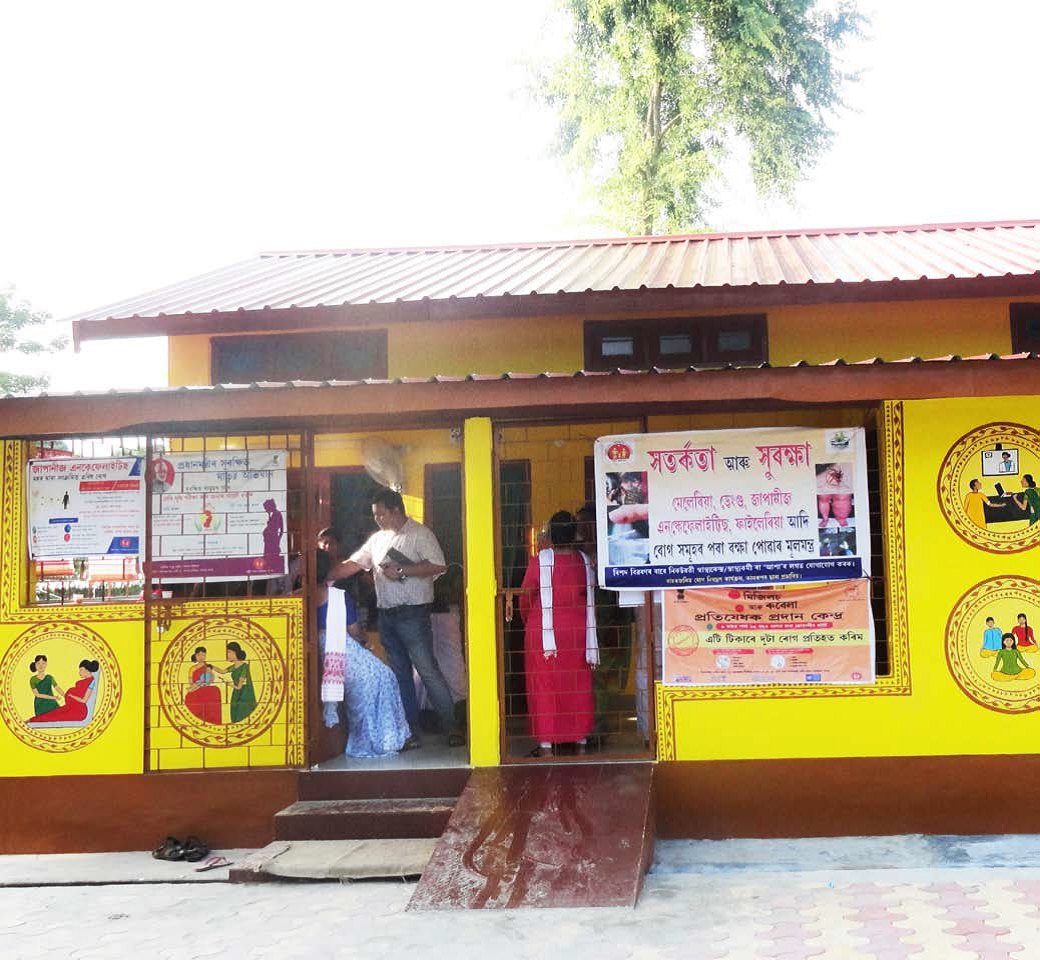Project Safal Shuruaat
Project Safal Shuruaat
Problem Statement
To increase the demand for immunization and hand washing with soap at key occasions, in select districts of Uttar Pradesh. This joint initiative augments the two national priorities of the Government of India- Routine Immunization and Swachh Bharat Abhiyaan.
Along with a focus on these two priority behaviors, the umbrella of successful parenting also helps parents to adopt other related behaviors - ageappropriate nutrition, early child care and development, as well as improved parenting skills.
Programme Description
The project focuses on engaging with the following:
Primary Audience:
- Parents of children under 2 years.
Secondary Audience:
- Influencers in the family, gate keepers and elder siblings at home (School students).
- Influencers in the community: PRI members, schoolteachers, health practitioners, retired servicemen and other key opinion leaders.
- Health system: Frontline health workers and staff of primary health care system; other relevant staff form the health department at different levels from block, district to state level. The project is built to empower the collective efficacy of the couple, the families and the community. The project addresses barriers at different levels of the socio-ecological system, to facilitate progress for the parents.
Key elements of programme design (Communication intervention sites):
- District Launch – To create awareness among key government stakeholders, to build systematic ownership and emphasize the need for collective action.
- Village Launch – To introduce the project at the village level, pave an entry of the Safalta Coach (a male and female duo- the field staff) and garner support from key opinion leaders, elected representatives and FLWs.
- Home Visits – One to many household level contact sessions addresses barriers to behavior change at different levels of the socio-ecological system, using learning through demonstration, tools, technology and recognition, to help build knowledge, self-efficacy and eventually change practices.
- Anganwadi Center Activity – Contact sessions with young mothers and the family gate-keeper – the mother in-law, at the Anganwadi center, delivered by the Safalta Coach along with the front-line health worker, expanding a traditional health service delivery post at the village level, to discuss and trigger health behaviors.
- School Contact Programme – School contact sessions, exposing young children to key behaviors, through a range of fun and interactive activities.
- Male Engagement Activity – A contact session specially focused on fathers of 0-2-year-old children, to sensitize and mobilize them to embrace and support early childhood development.
Journey so far
The project has been piloted in 2 districts of Uttar Pradesh (Allahabad and Hardoi). In Phase 1, the project reached to households with 0-2 year old children, across 807 villages in 2 districts of Uttar Pradesh in 2018-19. Through the different elements of the programme, the project established a direct reach of 4,54,118 people that included parents of 0-2 year old children, students, key opinion leaders, government officials, health functionaries and other community members. In Phase 2, the project is being further expanded to additional twelve districts, in 2019-20, to gain an estimated direct reach of 3 million people. Impact
During the pilot a robust Concurrent Monitoring (CM) system was set in place, to track the key indicators on hand washing and immunization in synergy with the interventions. This also provided mid-course corrections. Some key findings obtained from the CM are as below:
Hand washing with Soap:
- The incidence of HWWS after defecation increased 5 times (from 13% to 70%)
- The incidence of HWWS after disposing child faeces more than doubled (from 11.2% to 26.7%).
- The incidence of HWWS before cooking by mothers increased 5 folds (from 4.3% to 21.2%).
- The incidence of HWWS before eating increased 8 folds (from 2.6% to 20.8%).
- The incidence of HWWS before breastfeeding a child increased 6 times (2.7% to 17.8%).
- A 20% increase in knowledge around ‘HWWS prevents diseases’ was observed.
Immunization
- An incremental rise was observed in people possessing the Mother and Child Protection (MCP) card (85.2% to 96%).
- Knowledge about the number of times a child needs to get immunized (7 times in 5 years) increased 5 times (14% to 72.1%).
- A significant rise was observed in proportion of people aware about diarrhea (from 21% to 35%) and pneumonia (from 21.1% to 41.1%) being vaccine preventable diseases.
- A significant increase was observed in the compliance of critical vaccines:
- 55.2% increase in compliance of Rota (from 1.2% to 56.4%).
- 27.4% increase in compliance of Measles-Rubella (from 45.9% to 73.3%).
- 14,4% increase in compliance of Pentavalent (from 66.1% to 80.5%).
Implementation Partners
Project Safal Shuruaat (successful beginning), co-sponsored by Gavi, the Vaccine Alliance and Hindustan Unilever and implemented by Group M.

Source : We Care Coffee Table Book - Good, Replicable and Innovative Practices 2019
Last Modified : 6/11/2021
A digital platform to capture all vaccination acti...
Ministry of Health and Family Welfare has made the...
This topic provides information related to Nationa...
The topic covers various aspects about immunizatio...
